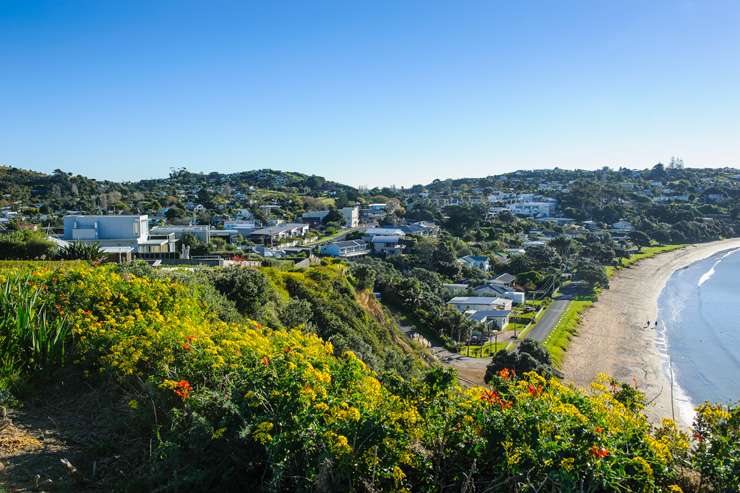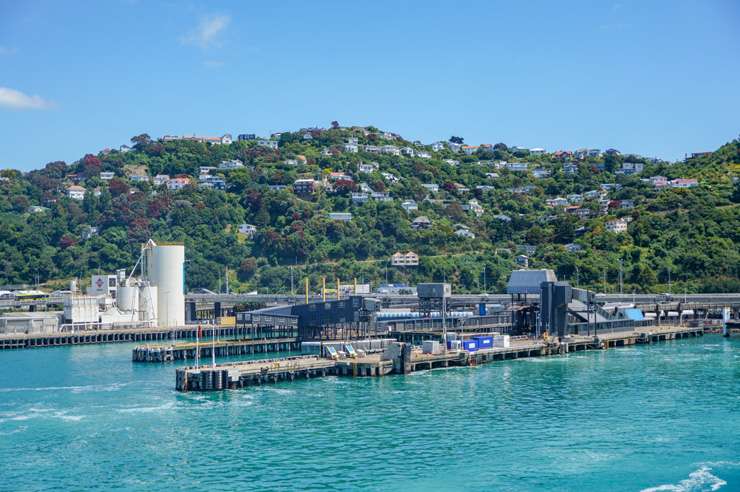New Zealand’s housing market has started 2023 on the backfoot, with the nationwide average property value falling $118,000 in the last 12 months to $977,000, new OneRoof figures show.
However, the downturn may be losing momentum, with data from the OneRoof-Valocity House Value Index showing a slowdown in the rate of decline in some regions and major metros.
The overall rate of decline has gone from a peak of 4.3% in the September quarter to 3.1% in the three months to the end of January.
Start your property search
Auckland’s rate of decline has gone from 5% to 3.9% over the same period while Greater Wellington’s rate of decline has pulled back from a high of 9% to 4.9%.
While it may be too early to conclude that the worst of the downturn is over, with low sales volumes bringing a fair amount of volatility to market readings, the figures suggest that the initial shock of rising interest rates and the cost-of-living squeeze may have been absorbed by buyers and sellers.
Determining whether or not the slowdown in the value decline is a blip will be the flow of new listings in February and March - typically the real estate's busiest period - after weaker than expected activity in spring and early summer.
Indications that inflation has peaked may also give the Reserve Bank second thoughts on the size of future rises in the Official Cash Rate and give certainty to prospective buyers and sellers who have held off decisions to see how the market downturn plays out.
The latest OneRoof-Valocity House Value Index figures show that the market is still in poor shape after some of the steepest house price falls since the GFC.
Property values in all but two regions are lower than they were a year ago, with homeowners in Auckland and Greater Wellington hit the hardest.
Auckland’s average property value fell 15.1% ($238,000) to $1.341 million in the last 12 months while Greater Wellington’s dropped 21% ($237,000) to $892,000. The average property value in Hawke’s Bay and Manawatu-Whanganui also dropped by double-digits.
Taranaki’s average property value of $702,000 remains unchanged year on year, although it has fallen 4% from a peak of $731,000 in June. West Coast remains the only region to register value growth. Its average property value is up 7.2% ($28,000) on January 2022 - a boost for sellers in the country’s cheapest housing market - but a rise of just 0.2% over the last quarter suggests it will soon be joining the rest of the country in negative growth territory.
The figures show house values in the region peaked at $421,361 in late November, but the performance of Southland, another lower value housing market, points to an easing of values rather than a steep decline.
Southland’s average property value, while down 2.53% ($13,508) from a peak of $534,000 in May, has seen growth (albeit small) in the last few months.
James Wilson, head of valuations at Valocity, said: “The latest figures point to continued slides in the market even though the rate of decline may be easing in some parts of the country.
“House prices in 50 territorial local authorities (TLAs) are lower now than they were a year ago, and in Wellington, Lower Hutt and Upper Hutt lower than they were two years ago.
“The best-performing TLAs areas - Clutha, Gore and Grey - only saw modest quarterly growth, and these were more remote areas with lower transaction volumes.
“That being said, the New Zealand economy remains strong, with 2% growth in the September quarter and unemployment sitting low at 3.3%. These two factors mean that while borrowers may be increasingly stretched as a result of inflation and interest rate pressures, the country is unlikely to see a rapid rise in mortgagee sales. Furthermore, the return of international tourists, students and immigrants may indeed increase demand for property in some areas.”
For those who bought before the boom, values are up 27% on pre-pandemic levels, meaning there are still significant gains to be made for well-positioned homeowners who decide to sell in the current climate.
According to the OneRoof-Valocity data, homeowners in 55 suburbs are sitting on post-Covid gains of $500,000-plus, with the boom delivering the biggest property value lifts for homeowners on Waiheke Island (up $1.1m on January 2020’s average property value) and Ben Lomond (up $1.06m over the same period).
The figures also show value lifts of between $200,000 and $500,000 in another 552 suburbs over the same period, although the downturn is fast-eroding gains in 63 of the 1192 suburbs that have recorded 10 or more settled sales in the last 12 months.

Houses overlook Oneroa beach, on Waiheke Island. The suburb's average property value has fallen 5% in the last three months to $2.184 million, but is still up 32.4% on its pre-Covid value. Photo / Getty Images

Wellington Ferry Terminal at Pipitea. The slump has wiped out all of the value gains the suburb had enjoyed during the boom. Photo / Getty Images
Homeowners in Pipitea, in Wellington, have lost the most, with the suburb's average property value 5.1% ($33,000) lower now than it was in January 2020. The slump has wiped out the near-$200,000 gain the suburb enjoyed post-Covid. Three more Wellington suburbs - Wellington Central, Oriental Bay and Mount Victoria - are at risk of joining Pipitea, with the post-Covid gains in each worn down to less than $30,000.
Oriental Bay’s average property value has also fallen $605,000 since peaking at $2.75m in 2021, with the high-end apartment market passed over by wealthy buyers more interested in diverting their cash to real estate options on Waiheke Island and Omaha.
The research shows the downturn having the biggest impact on apartment-heavy markets that had been reliant on overseas students and investors.
Wilson said: “Falling values after an unusual boom period do present more opportunities for first-home buyers to get on the ladder, with the amount now needed for a deposit up to $50,000 lower than at market peak.”

Valocity head of valuations James Wilson: "The country is unlikely to see a rapid rise in mortgagee sales." Photo / Fiona Goodall
Wayne Shum, senior researcher at Valocity, said first-home buyers’ share of purchases ticked up in December 2022 to 42.5%, from 40.2% the month before. The actual number of purchases, just over 2700, was well down on the 3800 recorded in December 2021, but up on the 2300 in November 2022.
The share of purchases by investors in December 2022 was at 24.3% down marginally on November’s share but up three percentage points on December 2021, although the number of purchases sits at just over 1500.
“Interest rates have increased to levels not seen since a decade ago and the still-high inflation rate of 7.2% may well prompt the Reserve Bank to lift rates again later this month, although there is building resistance to another hike of 0.75 percentage points. The fact that some of the main banks are lowering their long-term (3+ year) fixed rates may be a sign that the end of the tightening cycle is near.”














































































